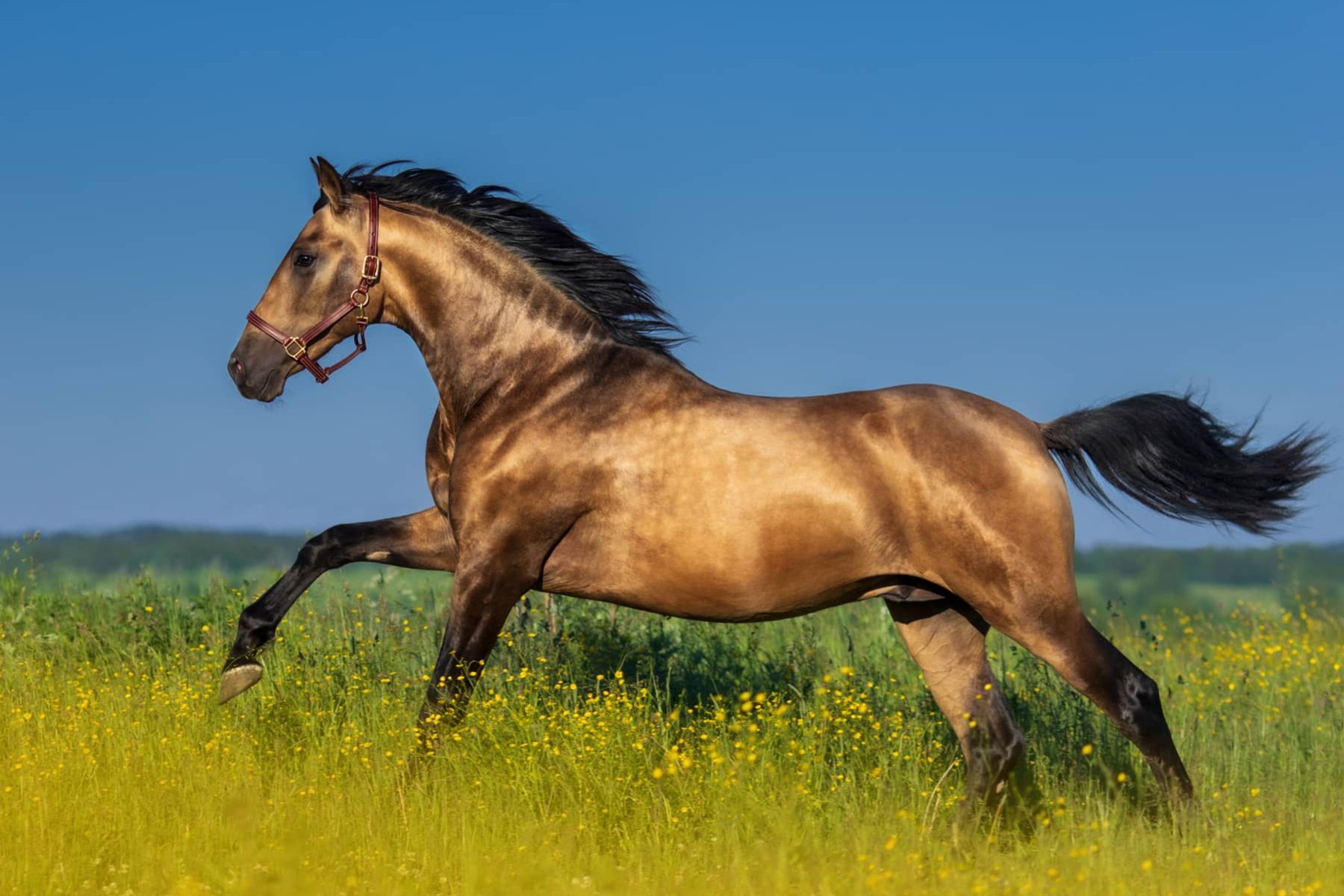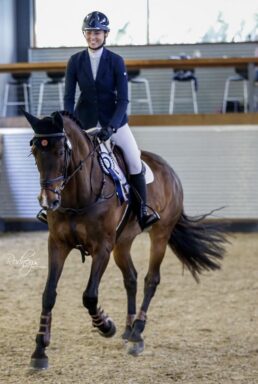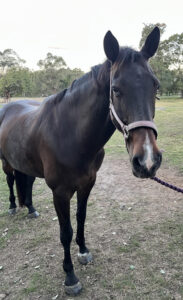
Hope for Headshaking – Olivia and Tux’s Story

Like many concerned owners of horses suffering with headshaking syndrome, Olivia McDermott reached out to us early in 2024 to see if any of the research studies we are involved with could help with her horse’s condition. She wanted to give her beautiful horse one last chance to beat the condition. After chatting with Dr Murphy, she explained that the pattern of Tux’s seasonal headshaking was unusual in that it started in autumn and stopped in the spring. However, she had seen some improvement with use of a vaccine that blocked reproductive hormones, leading Dr Murphy to suggest that continuous exposure to lengthened days through the winter months provided by the light mask might help. Read on to hear what happened next…
“My horse no longer suffers from Headshaking thanks to Equilume”
“My beautiful gelding Tux had been headshaking for almost 6 years. He would exhibit severe anxiety, vertical ticking and nose-rubbing behaviour seasonally from May through to October here in Brisbane, Australia. An oestrus control vaccine was the only treatment that seemed to help with symptoms, but when this was discontinued, he reverted to very distressing headshaking behaviour, to the point that I almost made the heartbreaking decision to have him put to sleep. I had become frightened of his unpredictable behaviour and could see how much distress he was in.

A very happy Tux with a new lease on life
After hearing about Dr. Murphy’s research with blue light masks for headshaking, I reached out to see if this might help as a last resort.
We fitted the Equilume Pro Light Mask on Tux in March and it has been an absolute gamechanger! This mask has completely resolved his headshaking and he is back to being a happy, healthy horse. I cannot thank Equilume enough, or express how grateful I am, that I don’t have to make that heartbreaking decision now and my beautiful boy is happy again. We owe you everything. Thank you Equilume.”
Olivia McDermott and Tux, Brisbane, Australia
WHAT IS HEADSHAKING SYNDROME?
Whilst it is normal for a horse to shake it’s head some of the time, 4.5% of the UK equine population shake their heads more than is normal. There are many causes of headshaking, but most horses are affected by trigeminal-mediated headshaking. This is a neuropathic facial pain syndrome, characterised by spontaneous, involuntary, violent flicking of the head, snorting, rubbing the face on legs or objects and striking at the nose with a forelimb. Signs tend to worsen under specific environmental conditions such as exposure to heat, bright light, wind, high pollen count and when horses are exercised. Affected horses may exhibit mild to severe signs and symptoms that impact welfare and horse–owner interactions. Horses and ponies of any breed may be affected; however, it may be more prevalent in geldings. Therapeutic options are limited, and treatments are only partially successful.
The Equilume Light Mask is currently being investigated in scientific trials as a potential treatment for trigeminal-mediated headshaking, and specifically in cases where symptoms worsen in the spring and summer months. Not all headshaking horses will respond to blue light treatment as well as Tux did, as there are many unknowns in relation to the condition. However, Olivia and Tux’s story provides hope, and Equilume is proud to be involved in research that might provide a solution for many horses that suffer from the condition.
Shop the Equilume PRO Light Mask used to help Tux
Want to find out more about how Equilume could help your horse? Contact a member of our team today or shop our products now.
Announcement of the 2024 UK & Ireland trial: UCD and UK researchers collaborate to investigate Equine Headshaking